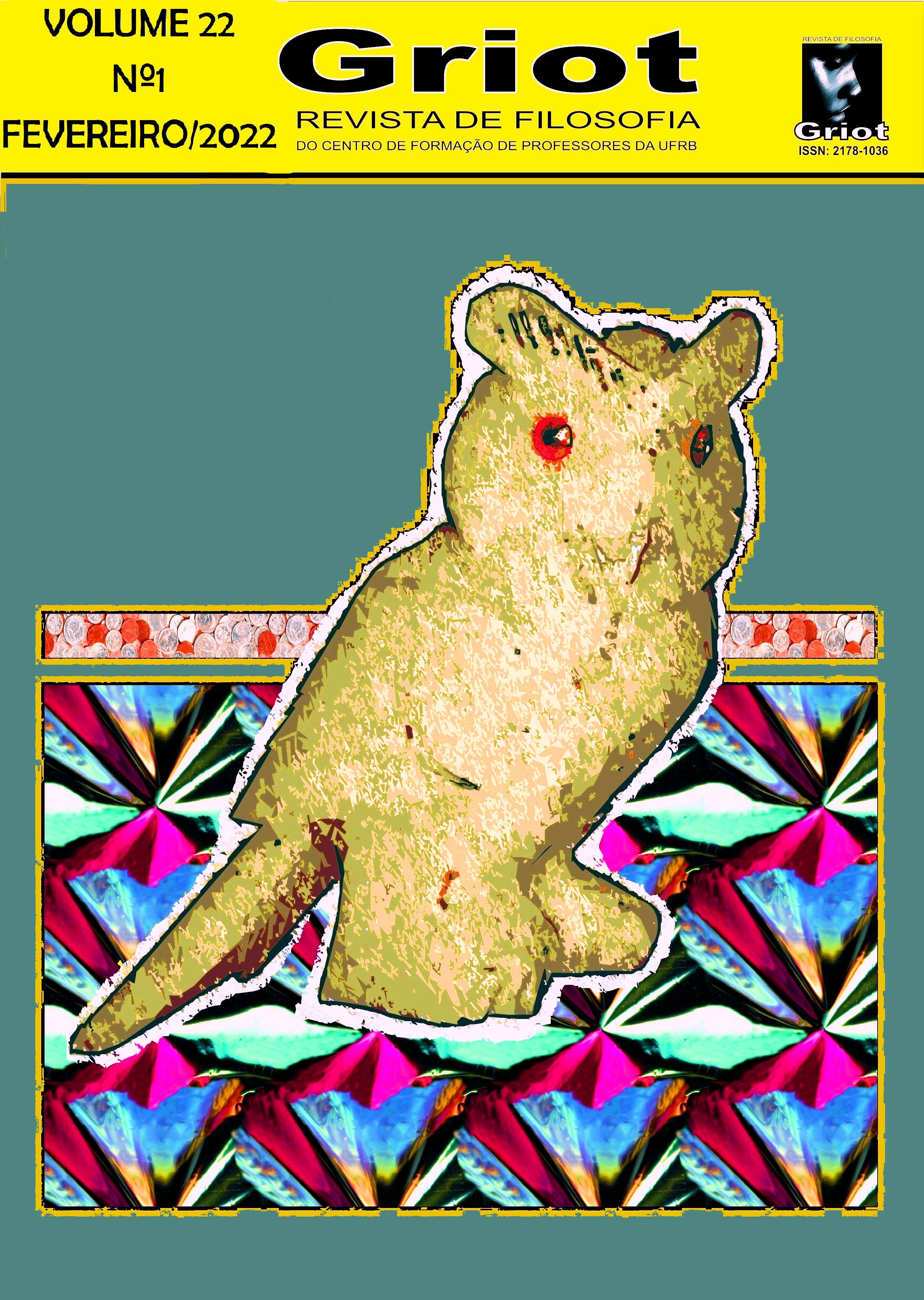Desontologization of the gendered subject and the substance metaphysics: Butler's dialogues with Nietzsche
DOI:
https://doi.org/10.31977/grirfi.v22i1.2566Keywords:
Judith Butler; Friedrich Nietzsche; Body; Gender; Performativity.Abstract
The article discusses how Judith Butler's theory of gender, mainly based on what the author called metaphysics of substance, operates a desontologization of sex-gender experiences. For this, it exposes how Butler operates the desontologization of the gendered subject, through her feminist critique of the idea of subject conceived from the mark of sexual difference. Later, it dedicates to what Butler called the “metaphysics of substance”, seen as what sustains, within the framework of the binary sex-gender system, the idea of natural difference of bodies, a moment in which the author resorts to the genealogy of morals developed by Nietzsche to justify her genealogy of gender and bodies, seeing these as inseparable, which is why she concludes that, in the manner of gender, the production of bodies occurs in a performative way through contextualized recitations that establish the boundaries of human intelligibility and that, therefore, it is subject to transformation.
Downloads
References
BARIL, Audrey. De la construction du genre à la construction du “sexe”: les thèses féministes postmodernes dans l’oeuvre de Judith Butler. Recherches féministes, Vol. 20, N. 2, p. 61-90, 2007.
BUTLER, Judith. Bodies that matter, on the discursive limits of “sex”. Nova Iorque, Londres: Routledge, 1993.
BUTLER, Judith. Gender trouble: feminism and the subversion of identity. 2ª ed. New York, London: Roudedge, 1999.
BUTLER, Judith. Undoing gender. New York, London: Roudedge, 2004.
BUTLER, Judith; TOHIDI, Nayereh. An interview on feminist ethics and theory with Judith Butler. Journal of Middle East Women's Studies, Vol. 13, N. 3, p. 461-468, 2017.
CHAMBERS, Samuel A. ‘Sex’ and the Problem of the Body: Reconstructing Judith Butler’s Theory of Sex/Gender. Body & Society, Vol.13, N.4, p. 47–75, 2007.
DIAZ, Elvira Burgos. Desconstrucción y subversión. In: SOLEY-BELTRAN, Patrícia; SABSAY, Leticia. Judith Butler en disputa: lecturas sobre la performatividad. Barcelona: Editorial Egales, 2012, p. 1180-1572 (Arquivo Kindle).
GEMES, Ken. Nietzsche's Critique of Truth. Philosophy and Phenomenological Research, Vol. 52, N.1, p. 47-65, 1992.
GLENN, Paul F. The Politics of Truth: Power in Nietzsche’s Epistemology. Political Research Quarterly, Vol. 57, N. 4, p. 575-583, 2004.
JAGGER, Gill. Judith Butler: sexual politics, social change and the power of the performative. Londres e Nova Iorque: Routledge, 2008 (Arquivo Kindle).
LLOYD, Moya. Performativity, parody, politics. Theory, Culture & Society, Vol. 16, N. 2, p. 195-213, 1999.
MARTÍNEZ, Ariel. La tensión entre materialidad y discurso: la mirada de Judith Butler sobre el cuerpo. Cinta moebio, Vol.54, p. 325‐335, 2015.
NAVARRO, Pablo Pérez. Del texto al sexo: Judith Butler y la performatividad. Espanha: Editorial Egales, 2008 (Arquivo Kindle).
NIETZSCHE, Friedrich. Verdade e mentira no sentido extramoral. Comum, Vol.6, N. 17, p. 05-23, 2001.
NIETZSCHE, Friedrich. A genealogia da moral. 4ª ed. Petrópolis: Vozes, 2013.
RODRÍGUEZ, Eva Patricia Gil. ¿Por qué le llaman género cuando quieren decir sexo?: Una aproximación a la teoría de la performatividad de Judith Butler. Athenea Digital, N.2, p. 30-41, 2002.
ROSA, Patricia. Gênero: performativo ou ontológico?. Peri, Vol. 4, N. 1, p. 46-56, 2012.
SALIH, Sara. Judith Butler e a teoria queer. Belo Horizonte: Autêntica, 2012.
SOBRINHO, Noéli Correia de Melo. Apresentação por Noéli Correia de Melo Sobrinho. In: NIETZSCHE, Friedrich. Verdade e mentira no sentido extramoral. Comum, Vol.6, N. 17, p. 05-07, 2001.
Downloads
Published
How to Cite
Issue
Section
License
Copyright (c) 2022 André Luiz dos Santos Paiva

This work is licensed under a Creative Commons Attribution 4.0 International License.
The authors who publish in Griot: Revista de Filosofia maintain the copyright and grant the magazine the right of first publication, with the work simultaneously licensed under the Creative Commons Attribution 4.0 International License, allowing sharing and adaptation, even for commercial purposes, with due recognition of authorship and initial publication in this journal. Read more...









































































